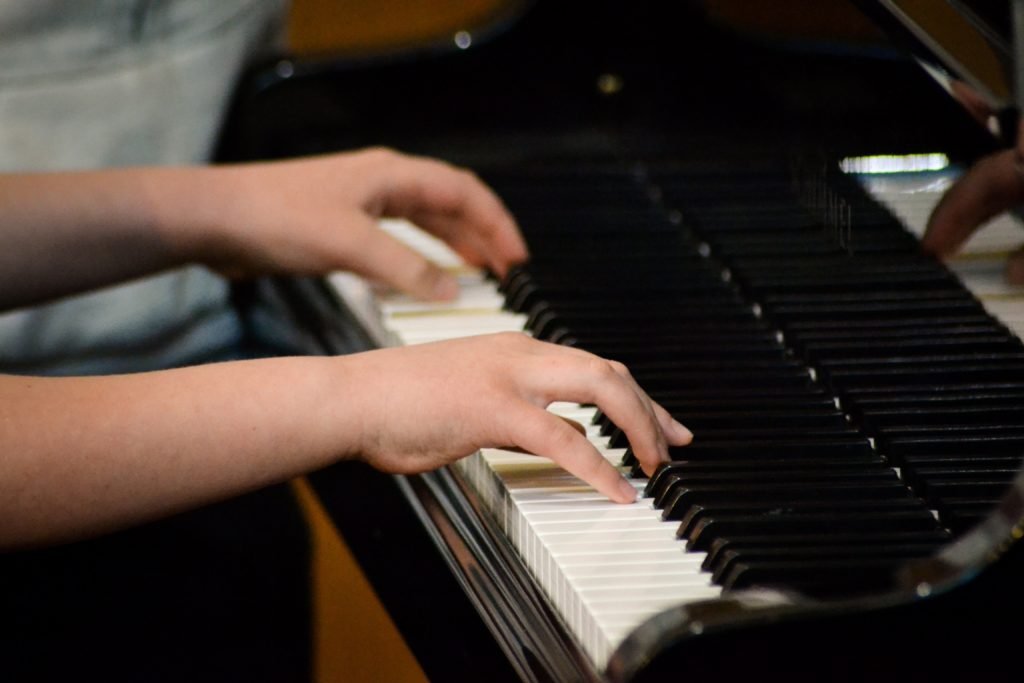Heckling
It was the week before the studio recital last November. Joey and Brendon have back-to-back lessons on Wednesday evenings, and for weeks we had been stealing a bit of time from each lesson so that they could play their recital pieces for one another. As always, I invited the listening kid to give feedback to the performing kid. Joey had just finished playing when Brendon started in. “Now the only reason I know to say this is because I’ve been hearing Amy heckle you about this the last few weeks . . .”
“Stop right there,” I said. “Heckle? Really?”
Joey jumped in to defend me. “I don’t think you can call it “heckling,” because heckling means to interrupt, and Amy doesn’t interrupt.”
Well gee, thanks. But clearly, Joey had overlooked the fact that I had just interrupted Brendon with my objection. I am always interrupting students playing the last notes of their pieces so I can jump in quickly with my criticism. I interrupt their stories about their last soccer game so I can teach key signatures. I interrupt them as they, curious, start to sight-read through a new piece. I interrupt myself in the middle of writing practice assignments, leaving half words and sentences all over their notebooks. I interrupt because I don’t trust time, always fearful of running out. I interrupt little pianists because I don’t want to give them any chance to start fiddling. I interrupt because I’m scared of awkward silences, and empty space makes me nervous. I interrupt because I am bored. I’m not proud of any of this, but there it is: I interrupt all the time. It’s a terrible habit.
I not only interrupt others—my students, my friends, my husband—I interrupt myself. I jump up from the piano mid-phrase to scribble a grocery list. I leave the bathroom with my toothbrush still in my mouth and start making the bed. In the middle of writing an email, I stand up and feed the fish swimming in the bowl on the mantle. My attention is not linear or steady. I can hardly finish a thought, let alone a task, without interruption.
FaceTime/Zoom lessons are a harsh reality check for a chronic interrupter. Not only should I not interrupt, but more space between thoughts and words is needed. More time to allow the sound to finish and settle. More space to let both of us—student and teacher—process the garbled noise we are hearing and recover. As we are trying to make sense of what might be happening in this virtual mess, Zoom constantly interrupts with its bad internet connections, frozen visuals and lagging audios. Actually, it’s worse than interrupting. It’s plain old heckling.
Many years ago, I attended a workshop organized by the great pedagogue Jean Stackhouse. At some point during the weekend, Jean asked us, “Do you interrupt your students while they are playing?” This led to an energetic discussion. We tore apart the distinction between interrupting a student playing something they had prepared versus trying a new skill in our presence. We debated the merits of waiting until after the student had finished versus fixing mistakes immediately. We defended the practice of never interrupting the first time through but stopping students freely on any subsequent repetitions. It was a heated discussion, by far the most passionate one of the weekend. But I think perhaps Jean was asking about more than our pedagogical habits. She was asking us to examine our patterns of boredom and attention and how our unconscious actions might reflect those. I’ve attended dozens of workshops in my career, and I’ve learned lots of things from various teachers and presenters. But Jean’s question has stuck with me all these years later, a thorn prodding my awareness every time I catch myself interrupting a student’s work. Which, Zoom or no Zoom, is every hour, every day.
Lately, I’ve been thinking a lot about the idea of teaching as a spiritual practice, trying to see my teaching hours not simply as my profession, the way to earn a paycheck, but as a sort of held space for my own spiritual work. Because the truth is while there is always plenty to be done to teach the fine art of playing the piano, there is at least as much work for me to do to become the grounded, centered, kind, compassionate person and teacher I wish to be. The teacher who, ideally, does not heckle, but instead is endlessly patient answering a small child’s curious questions. The person who waits without fidgeting while a student works out a thorny passage slowly, one hand at a time, once, twice, three times. The teacher who can swallow her own boredom and curb her interruptions long enough that the young pianist painstakingly stumbling through a new piece has a chance to really hear the music, or at least what might be possible, without the noise of my chatter or corrections. The spiritual being that can wait in silence while students carefully write practice instructions in their notebooks while the clock ticks. (Actually, I have decided that this last one requires the patience of a spiritual giant. Like Jesus. Or Buddha.)
There is no getting around it, the coronavirus has interrupted our lives, heckling our habits and routines. But still, there is so much to practice.
